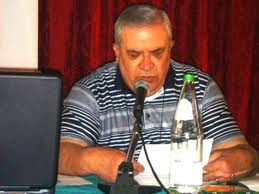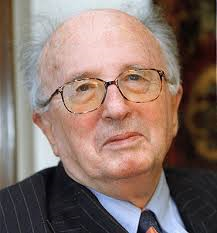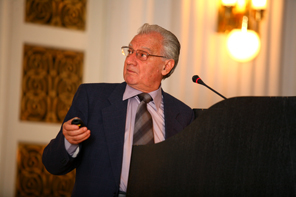sceptic
Feagans, Carl
 Carl Feagans is an American archaeologist and a dedicated sceptic who has occasionally featured in these pages. His most recent offering is a critique of Marco Vigato‘s Empires of Atlantis [1830], which ended his harsh assessment with “Vigato began his book with a conclusion. He tried to support that conclusion with pseudoscientific and fictional accounts he apparently gathered for 15 years.”(a)
Carl Feagans is an American archaeologist and a dedicated sceptic who has occasionally featured in these pages. His most recent offering is a critique of Marco Vigato‘s Empires of Atlantis [1830], which ended his harsh assessment with “Vigato began his book with a conclusion. He tried to support that conclusion with pseudoscientific and fictional accounts he apparently gathered for 15 years.”(a)
>He has also offered a lengthy attack on Michael Jaye‘s Global Flood theory.(b)<
See: Brien Foerster, Fuente Magna Bowl, Spain, Sumerians & Yonaguni
(a) Book Review: Empires of Atlantis – Archaeology Review (ahotcupofjoe.net)
(b) https://ahotcupofjoe.net/2019/11/the-pseudoarchaeology-of-michael-jayes-worldwide-flood/ *
Christopher, Kevin
Kevin Christopher is a confirmed sceptic, whose paper, Atlantis: No way, No How, No Where (a) , is widely available on the internet. It is a lightweight offering, frequently quoting two of the most extreme location theories, such as, Bolivia and Antarctica as justification for his view that the Atlantis story is ‘entirely fictional’.
Christopher also questions the chain of transmission of the story, describing it as ‘tenuous’. But as I have pointed out elsewhere, if Plato had simply concocted the Atlantis tale, it is reasonable to expect that he would also have invented a more straightforward provenance. Consequently, any perceived difficulties in this regard, actually enhance the credibility of the narrative.
>Some years ago Rod Martin wrote a short paper grading the arguments of some of the better known Atlantis sceptics, such as Michael Shermer and Kevin Christopher(b) .<
(a) https://www.csicop.org/sb/show/atlantis_no_way_no_how_no_where
Higginson, Thomas Wentworth (L)
Thomas Wentworth Higginson (1823-1911) was an American  abolitionist, feminist and Unitarian minister. He was also an author including The Enchanted Islands of the Atlantic[1086], published in 1898. His first chapter very briefly reviews some of the Atlantis theories of his day particularly in relation to the Atlantic, about which he appears to be rather sceptical(a) noting that “Since the depth of the Atlantic has been more thoroughly sounded, a few writers have maintained that the inequalities of its floor show some traces of the submerged Atlantis, but the general opinion of men of science is quite the other way. The visible Atlantic islands are all, or almost all, they say, of volcanic origin; and though there are ridges in the bottom of the ocean, they do not connect the continents.”
abolitionist, feminist and Unitarian minister. He was also an author including The Enchanted Islands of the Atlantic[1086], published in 1898. His first chapter very briefly reviews some of the Atlantis theories of his day particularly in relation to the Atlantic, about which he appears to be rather sceptical(a) noting that “Since the depth of the Atlantic has been more thoroughly sounded, a few writers have maintained that the inequalities of its floor show some traces of the submerged Atlantis, but the general opinion of men of science is quite the other way. The visible Atlantic islands are all, or almost all, they say, of volcanic origin; and though there are ridges in the bottom of the ocean, they do not connect the continents.”
In 1984 his book was republished[1087] with the rather opportunistically revised title of Tales of Atlantis and the enchanted islands!
Calabresi, Stelio
Stelio Calabresi is an Italian researcher who has presented a number of papers  on various historical mysteries, particularly those of ancient Egypt. Unfortunately, as far as I can ascertain all are only available in Italian.
on various historical mysteries, particularly those of ancient Egypt. Unfortunately, as far as I can ascertain all are only available in Italian.
He has published a comprehensive article(a) about Atlantis on the Edicola website in which he reviews the whole spectrum of Atlantis theories, including an extensive bibliography. At the end of it all, I think that it is fair to describe Calabresi as a slightly reluctant skeptic regarding the existence of Atlantis.
Although his article is in Italian, it translates well into English.
(a) Edicolaweb – I MISTERI DI ATLANTIDE – di Stelio Calabresi (archive.org) (Italian) *
H
Albini. Andrea
Andrea Albini is the CEO of the Albini Group, an Italian textile company. His other interest is w riting books and articles on ‘the history of science, technology and ideas.” A 2012 offering of his is Atlantide nel Mare dei Teste (Atlantis in the Sea of Texts)[929]. Albini is clearly an Atlantis sceptic, ascribing the story to Plato’s imagination. However, the comprehensiveness of Albini’s review of the main theories has been lauded by Professor Marco Ciardi(a).
riting books and articles on ‘the history of science, technology and ideas.” A 2012 offering of his is Atlantide nel Mare dei Teste (Atlantis in the Sea of Texts)[929]. Albini is clearly an Atlantis sceptic, ascribing the story to Plato’s imagination. However, the comprehensiveness of Albini’s review of the main theories has been lauded by Professor Marco Ciardi(a).
Wauchope, Robert (L)
Robert Wauchope (1909-1979) was an American archaeologist who specialised in the prehistory  of the Americas. In his Lost Tribes & Sunken Continents[836], he adopts a softly sceptical view of Atlantology, discussing the consequences of proponents becoming obsessive about their pet theory and often abandoning objectivity in the process. He has some harsh criticism directed at the poorly constructed claims of Churchward and Le Plongeon. Although his book is now out print it is worth obtaining a used copy as it give a good overview of some of the popular ‘alternative’ pre-history theories of six decades ago and a sober assessment of them by a conventional scientist of that era.
of the Americas. In his Lost Tribes & Sunken Continents[836], he adopts a softly sceptical view of Atlantology, discussing the consequences of proponents becoming obsessive about their pet theory and often abandoning objectivity in the process. He has some harsh criticism directed at the poorly constructed claims of Churchward and Le Plongeon. Although his book is now out print it is worth obtaining a used copy as it give a good overview of some of the popular ‘alternative’ pre-history theories of six decades ago and a sober assessment of them by a conventional scientist of that era.
Vidal-Naquet, Pierre
Pierre Vidal-Naquet (1930-2006) was a noted French historian, political  activist and was also a fervent sceptic regarding the reality of Atlantis. He has frequently written and lectured on the subject with particular reference to the nationalistic zeal that seemed to underlie the theories of so many writers. His recent book [580] presents the radical view that Plato’s Atlantis was actually based on ancient Athens. This work was originally published in French but is now available in an English translation, The Atlantis Story [581].
activist and was also a fervent sceptic regarding the reality of Atlantis. He has frequently written and lectured on the subject with particular reference to the nationalistic zeal that seemed to underlie the theories of so many writers. His recent book [580] presents the radical view that Plato’s Atlantis was actually based on ancient Athens. This work was originally published in French but is now available in an English translation, The Atlantis Story [581].
Thorwald C. Franke has drawn attention to a recent (Oct. 2022) BBC interview with Classics Professor Edith Hall, whose sceptical view of the Atlantis story appears to be strongly influenced by the arguments of Vidal-Naquet. Franke has written a critique of the interview in his Newsletter No. 201(a).
>I found it interesting that Heinz-Guenther Nesselrath, another sceptic, has also written a review of Vidal-Naquet’s book and gave it very weak support, concluding with the following comment(b);
“One puts the book down with mixed feelings: There is no doubt that VN can write very well and that he really knows the things he is talking about, having occupied himself with them for half a century; on the other hand, one can only wonder why he sometimes prefers vague (though often witty) allusions to a clear exposition of things one would like to be informed of, and why he not rarely connects topics with each other that clearly do not belong together (e.g. Frau’s Atlantis theory and the Nazis, or Donnelly’s influential book and the theosophic occultists). All in all, the book could have been better; it looks like something of a missed opportunity.”<
Jordan, Paul *
Paul Jordan studied Archaeology and Anthropology at Cambridge University and for many years he has written and produced historical and scientific programs for British television. He is the author of a number of books about history and prehistory including Riddles of the Sphinx [415] and Neanderthal [416].
He can be fairly described as a devout sceptic, who has written a broad overview[418] of the Atlantis debate that is worth reading, although at least one commentator has described Jordan’s style as ‘splenetic(a).
A more focused commentary is his critique of Andrew Collins’s Gateway to Atlantis [0072], both in his own book and online, spread over four papers(b).
(a) https://mrobsr.blogspot.com/2009/08/atlantis-sinking.html#more
(b) https://web.archive.org/web/20211205075454/https://world-news-research.com/cgatlantis.html *
Feder, Kenneth L.
Kenneth L. Feder is a professional archaeologist, author, and prominent  Atlantis sceptic. Professor Feder says he makes one demand of Atlantis enthusiasts. “My rule is you can’t even use the word Atlantis in a sentence unless you can tell me you’ve read Plato.”
Atlantis sceptic. Professor Feder says he makes one demand of Atlantis enthusiasts. “My rule is you can’t even use the word Atlantis in a sentence unless you can tell me you’ve read Plato.”
>Feder is best known for his book Frauds, Myths & Mysteries [295] , which is now (2021) in its 10th edition. Recently, Thorwald C. Franke has published a critique of this popular book(a). It will be interesting to see if Feder responds to Franke’s contribution to the debate.<
Despite of his disbelief, Feder regularly uses Plato’s Atlantis account for lecture purposes, inadvertently highlighting the widespread significance of the story.
However, there is one point on which I can partially agree with Feder, when he noted that, “The geology is clear; there could have been no large land surface that then sank in the area where Plato places Atlantis. Together, modern archaeology and geology provide an unambiguous verdict: There was no Atlantic continent; there was no great civilization called Atlantis.”
So the geology only proves that there was no Atlantis in the Atlantic, not that there was no Atlantis.
(a) Critical commentary on: Kenneth Feder, Atlantis – Atlantis-Scout *
Doumas, Christos
 Christos Doumas (1933- ) is Emeritus Professor of Archaeology at the University of Athens and has a passion for his country’s early history.*He was the editor of Thera and the Aegean World (Vol I) [1573].*
Christos Doumas (1933- ) is Emeritus Professor of Archaeology at the University of Athens and has a passion for his country’s early history.*He was the editor of Thera and the Aegean World (Vol I) [1573].*
Doumas succeeded Spyridon Marinatos as director of the Akrotiri excavations on Santorini. Unfortunately, an accident that killed a British tourist led to the closure of the site in 2005. In the same year Doumas presented a paper to the Atlantis Conference on Melos when he outlined his reasons for believing that the Atlantis story was, in his word, a ‘chimera’, quoting his colleague, René Treuil.*At the Conference he argued on the basis of the Location, Size and Shape of Atlantis combined with the claimed level of Civilisation and the Date of Submergence!*
